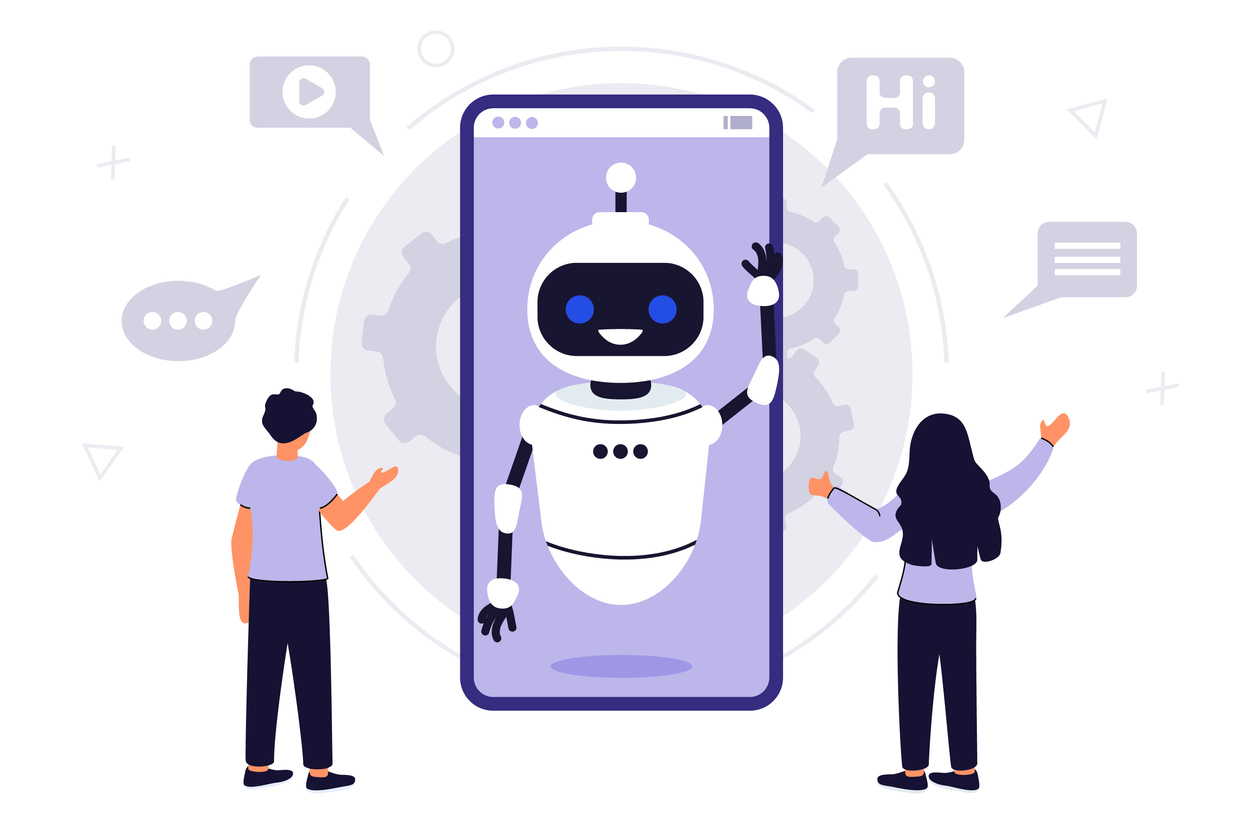ChatGPT and the Undeniable AI Impact on eCommerce

Welcome to the future. At least, that’s what most experts saw late last year when ChatGPT (a new artificial intelligence tool able to answer almost any long-form question on any topic) was first introduced to the public. AI in eCommerce has arrived, and it’s time to discuss its potential impact as you look to build and optimize your own online store and marketing effort.
Over the last few months, you might have seen the stories connected to ChatGPT. It can write code and fix software bugs, pass the bar exam, and essentially write essays for high school and college students.
But what exactly is it, and how does it work? What is ChatGPT? More generally, what is the AI impact on eCommerce? Answers to those questions require nuanced answers. Join us for an exploration of the platform and the broader concept to which it connects, the potential benefits of AI in eCommerce, and what the future may hold.
What, Exactly, Is ChatGPT?
Any discussion of AI in eCommerce has to begin with the tool that’s currently part of the zeitgeist in almost every industry. ChatGPT is a conversational tool that can answer questions of almost any nature. It does this by browsing the web and using its AI technology to construct a sensible answer.
The key here is sensible. ChatGPT has made headlines not because it’s another or even smarter search engine. Instead, its language algorithms are able to detect the deeper meaning behind the questions asked to make its answers more relevant. A question related to writing code will result in a fundamentally different answer compared to one asking it to write a business tagline — and yet, it can do both.
Here’s a more technical definition that encompasses all of that nuance:
ChatGPT is a large language model chatbot developed by OpenAI based on GPT-3.5. It has a remarkable ability to interact in conversational dialogue form and provide responses that can appear surprisingly human. Large language models perform the task of predicting the next word in a series of words. Reinforcement Learning with Human Feedback (RLHF) is an additional layer of training that uses human feedback to help ChatGPT learn the ability to follow directions and generate responses that are satisfactory to humans.
Naturally, a tool like that has the potential to transform entire industries. So let’s take a closer look at what it might mean for eCommerce.
Potential Applications of ChatGPT in eCommerce
Perhaps the most common current applications of ChatGPT in the eCommerce realm revolve around content:
- Use it to write product descriptions.
- Create social media content for your business and products.
- Create the text for promotional email campaigns.
- Get inspiration for naming new products according to your audience preferences and product details.
- Create and optimize landing pages for products and promotional campaigns.
At the same time, it’s important to understand the limitations of the current content creation mechanism ChatGPT offers. While the content is designed to be plausible, it is not always accurate. With the right queries, it will claim that elephants lay eggs, describe its own answers as wildly exaggerating, and get basic algebra wrong.
So, ChatGPT undoubtedly offers promise. But it’s a better idea to examine the greater potential AI impact on eCommerce beyond this single tool and platform.
The Current AI Impact on eCommerce

ChatGPT has opened a broader conversation about the AI impact on eCommerce. Over the past year, that conversation has moved forward in fascinating ways.
Automated copywriting, it turns out, is just one of the many possibilities that intelligent software can begin to open up. Already, AI is changing the eCommerce landscape in a multitude of ways:
- Data mining and machine learning can lead to deep personalization in marketing and promotions. Businesses are creating more customized messaging that closes the gap to the more personalized brick-and-mortar store experience.
- Thanks to an increased flow of intelligent and structured data, automation can become smarter. It can even adjust email and messaging flows based on individual customer needs and preferences rather than simple, standardized rules.
- Through more relevant and in-the-moment data about customers, eCommerce merchants can increase the efficiency of their sales process by focusing more heavily on customers most likely to convert and return.
- An AI-optimized pricing strategy allows the price of your products to change dynamically based on in-the-moment demand. This allows users to maximize sales opportunities across seasonal and customer fluctuations.
- Sales and demand forecasting, especially once AI-enabled to move beyond historical trends, can lead to better inventory management and marketing budget optimization based on customer preferences.
In many cases, solutions and software platforms are already in place for eCommerce merchants to leverage AI in their own businesses. In fact, some of the platforms you leverage in your own online store, from eCommerce to messaging personalization, may already use AI to optimize the experience for both store owners and customers.
How Will AI’s Impact on eCommerce Disrupt Businesses?
AI is here, and its impact on eCommerce is undeniable. That, of course, leads to a crucial question:
How will that AI impact on eCommerce disrupt the way you run your online store?
As with any future predictions, it’s an impossible question to answer definitively. However, looking back to ChatGPT and both its opportunities and limitations can lead to a valuable lesson that applies more broadly to AI in eCommerce, as well.
AI undoubtedly has the potential to transform both individual online stores and the eCommerce industry as a whole. But it cannot do so independently. Left to its own devices, its promises quickly evaporate into inaccuracies and more headaches than successes.
In other words, human eCommerce and marketing experts will always need to play a role in managing the potential benefits AI can bring to the table. A deep understanding of the business, scaling up operations, and reviewing and optimizing AI outputs will need to be human tasks, both now and years down the road.
At Future Holidays, we love the potential AI impact on eCommerce. But we are also prepared to guide it in the right direction and keep that necessary level of oversight. Ready to partner with us on a marketing strategy designed to push your business and online store forward? Get in touch today.


